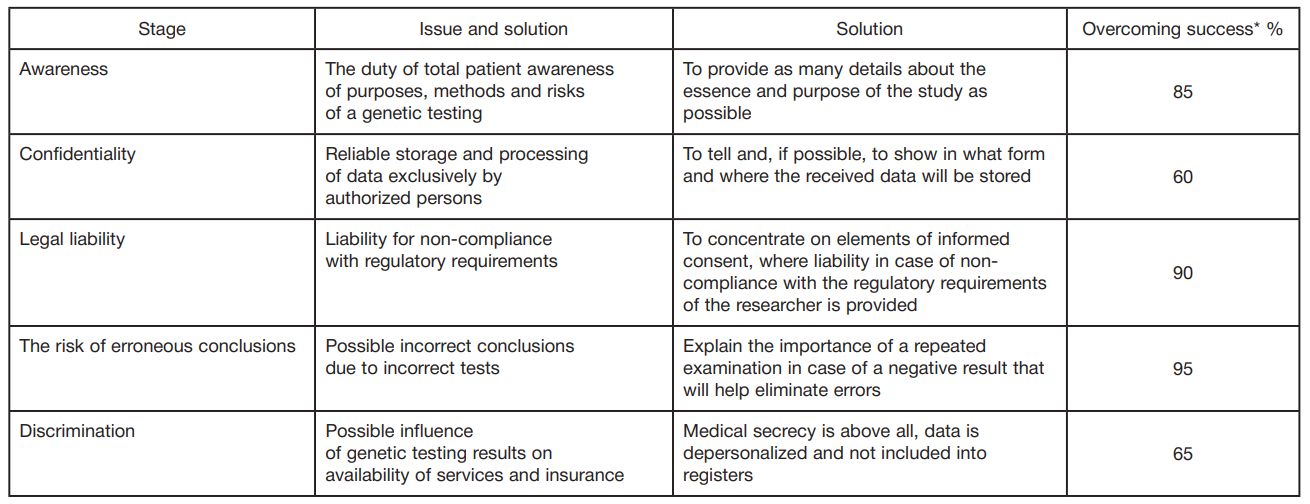
This article is an open access article distributed under the terms and conditions of the Creative Commons Attribution license (CC BY).
ORIGINAL RESEARCH
Ethical and legal implications of genetic testing in traumatology and orthopedics
Yaroslavl State Medical University, Yaroslavl, Russia
Correspondence should be addressed: Vitaly V. Savgachev
Revolutsionnaya St., 5, Yaroslavl region, Yaroslavl, 150000, Russia; ur.liam@8822grurih
Acknowledgements: the author expresses gratitude to Alexander L. Khokhlov, Academician of the Russian Academy of Sciences, Rector of Yaroslavl State Medical University (YSMU), for his help in organizing the laboratory genetic stage of the study.
Compliance with ethical standards: the study was carried out as part of the doctoral dissertation entitled “Treatment of purulent complications and prediction of their outcomes in patients with trauma to the medial lower extremity” approved by the Academic Council of YSMU (extract from protocol No. 11 of the meeting of the Academic Council of YSMU dated 06/26/2024, state registration number: 124071000009-0). The work was approved by the Ethics Committee (extract from the minutes of the meeting of the YSMU Ethics Committee dated June 14, 2024 No. 68).
